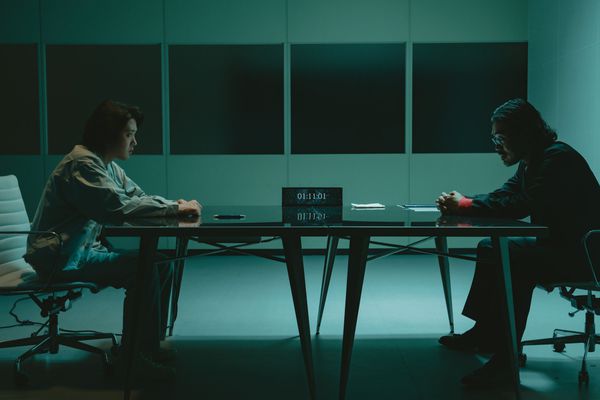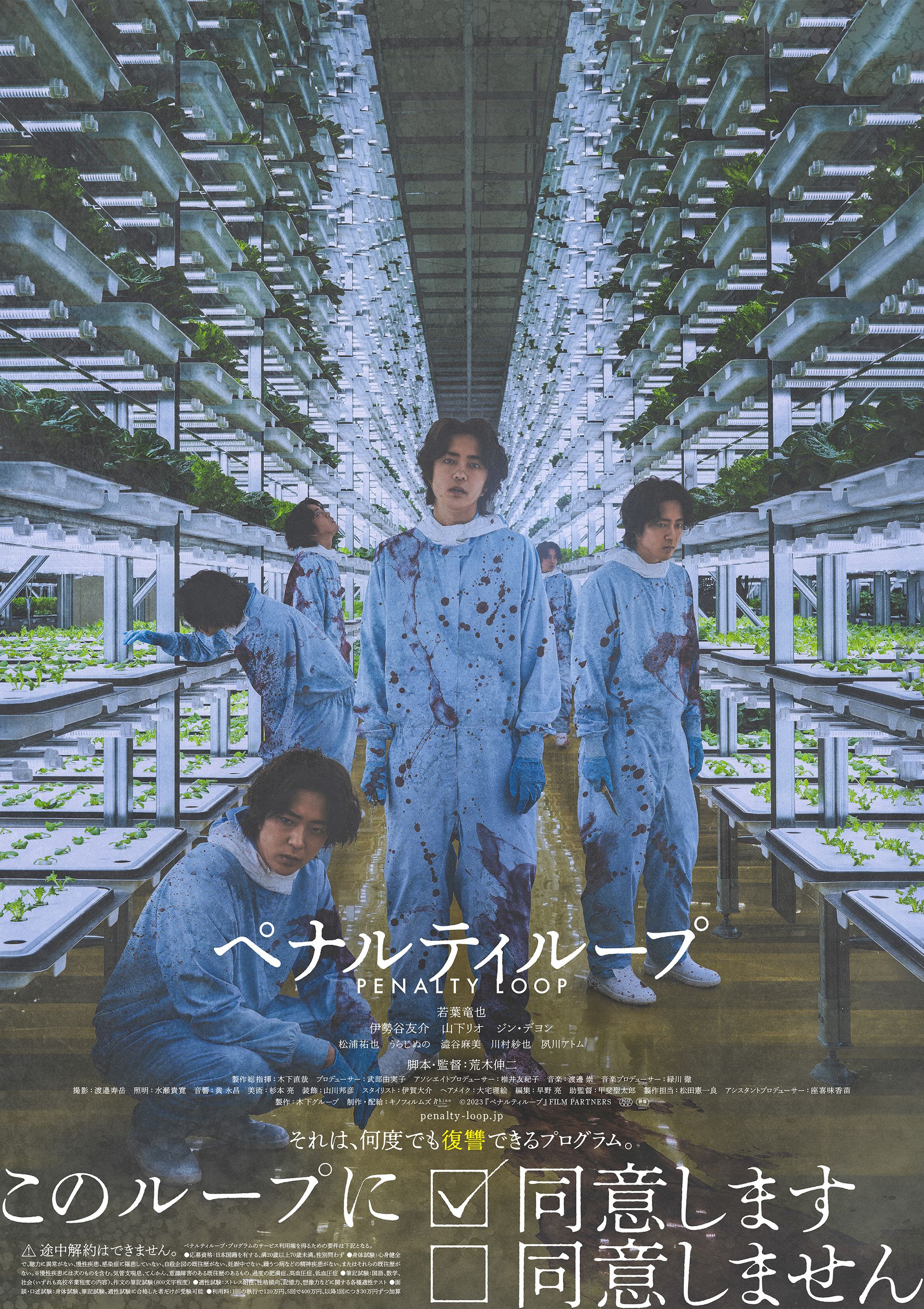Eye For Film >> Movies >> Penalty Loop (2024) Film Review
Penalty Loop
Reviewed by: Jennie Kermode

The first thing you will notice about Jun and Yui’s apartment is how unfinished it looks. The gaps between ceiling supports are filled not by panels but by brown paper. The walls are neither plastered nor papered, and parts of them still bear the construction team’s chalk marks. Perhaps this speaks to the young couple having just moved in and not yet had time to fix the place up. A collection of plants suggests commitment to a future together. Waking him gently, she tells him that she’s watered them before she prepares to head out to work. He holds onto her, not wanting her to go, but duty calls her. He watches her leave. He will see her again, but not alive.
We will subsequently learn, in flashback, that whatever Yui did, it was dangerous. She probably wouldn’t have been surprised to end up in a river. For Jun, however, the experience is devastating. He’s just an ordinary guy who spends his days making models and dreaming of becoming an artist. Now the only thing he can think about is getting revenge. He plans it out meticulously. He drives his little lemon-coloured car to the huge hydroponics building where the suspect, Mizoguchi, works, disguising himself in a Hazmat suit. He follows him, incapacitates him, does the deed and disposes of the body. But then, the next morning, he wakes up, and it’s the same day. Overwhelmed by feelings of déjà vu, he has to do it all over again.

“Good morning!” says the voice on his radio alarm clock. “It’s Monday, June 6. Clear skies. Today should be a nice windless day. The flower of the day is iris. It symbolises hope.”
We’re all familiar with time loop films, though this is an interesting context in which to deploy one, seeming to symbolise the mind’s inability to let go of such overwhelming anger. Director Araki Shinji uses familiar techniques to keep us interested, presenting some of the action from different angles, condensing it, focusing heavily on Jun’s face. The third time around, however, there’s a surprise. It becomes clear that we’re in unfamiliar territory. And whilst we’re still reeling, trying to figure out the rules, Araki introduces an unexpected human element, complicating the film’s emotional register and presenting us with a developing series of moral questions.
Everything here is logically consistent, and beautifully suited to Fantasia, but untangling it takes time, and during that time we get to know both Jun and Mizoguchi in a different way – as they get to know each other. “Why do you kill me?” Mizoguchi asks, and although the reason remains clear, it seems more and more abstract. Jun no longer seems to be in control – if he ever was.
Throughout the main part of the film, the locations are open and, for the most part, bright – there is no equating sorrow or depression with visual darkness. Ambient sound levels, however, are very low – you may not notice how much so until Araki presents us with contrast, reminding us, in the process, of the simple pleasures of being alive. In the muted spaces, Mizoguchi moves noisily, unselfconscious before he becomes aware of the threat, and the focus of all Jun’s attention. It’s a simple device but an effective one, and it shows us that, alongside cleverness and emotional impact, Araki understands craft. This is only his second film but it’s handled with unusual skill, and after seeing it you will be keen to follow what he does next.
Reviewed on: 29 Jul 2024















